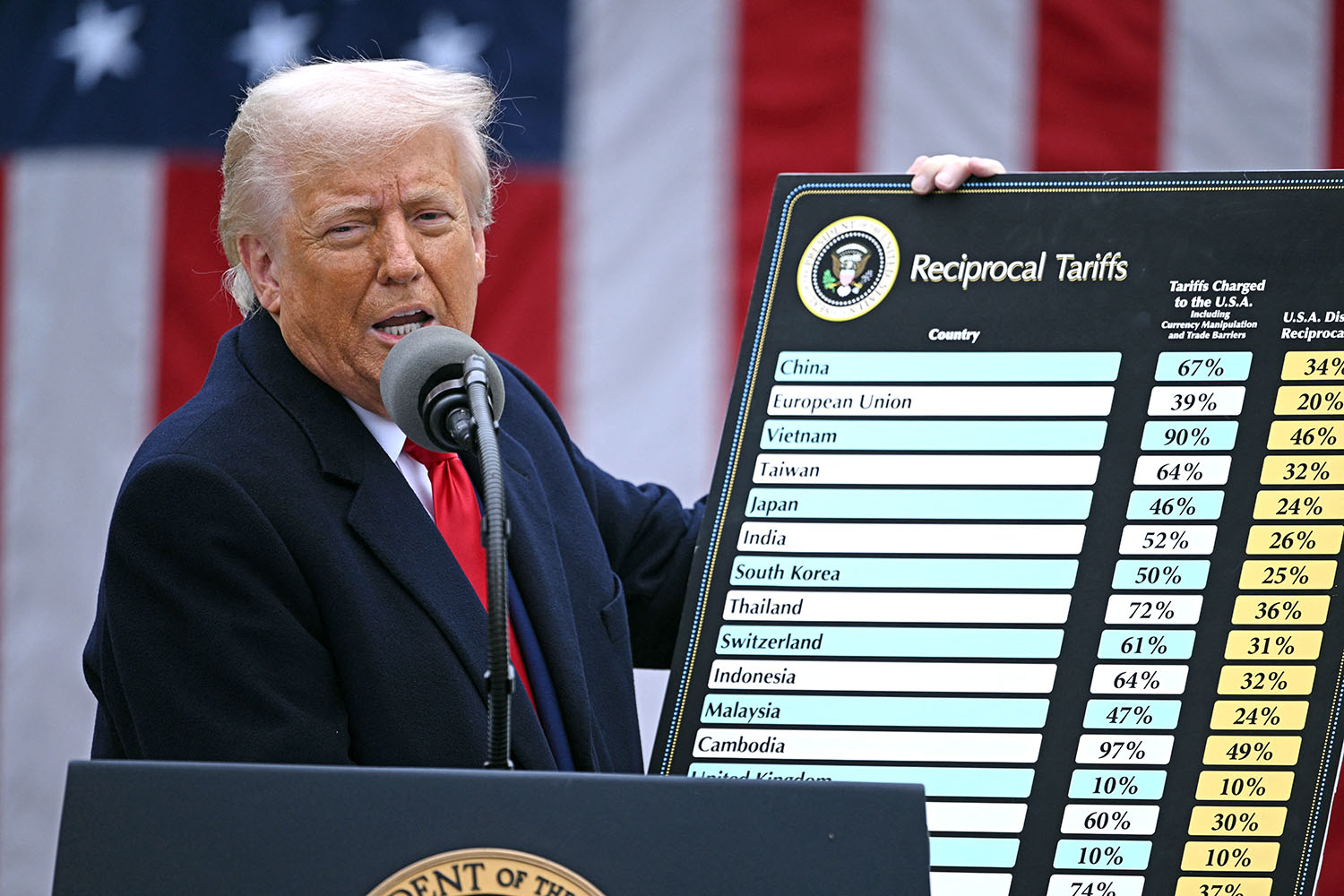People in government are already beginning to shiver that it will be “the mother of all nightmares”, and not just in terms of the security. They know that the Britons who come out to wave a star-spangled banner are going to be vastly outnumbered by those who take to the streets in protest. To the delight of blimp manufacturers, Donald Trump has declared that September will be the month when Charles will have the pleasure of keeping King Donald regally entertained and police officers can expect to earn bags of overtime. His pre-emptive announcement from the White House blindsided Downing Street and Buckingham Palace, neither of which have officially confirmed when he’s coming. Come he surely will, though, because disinviting the US president is regarded as inconceivable at No 10.
The unprecedented and unashamedly sycophantic offer of a second state visit was the product of Downing Street’s obsession with the question: how do we tranquillise a more aggressive America? As the weeks of Trump-induced turmoil rack up, this increasingly looks like the wrong question. Sir Keir Starmer would be better to ask: how do we respond to a weaker America?
Trump’s first 100 days back in the White House are an unrivalled example of how rapidly a manic leader who surrounds himself with fools and fanatics can recklessly unravel a mighty country’s greatest strengths. His assault on the global order is being ruinous for the reputation and the reach of the United States itself.
Trump’s first 100 days show how rapidly a manic leader who surrounds himself with fools and fanatics can unravel a country’s greatest strengths
Trump’s first 100 days show how rapidly a manic leader who surrounds himself with fools and fanatics can unravel a country’s greatest strengths
The “America first” doctrine doesn’t grasp that alliances have delivered a multiplier effect for US power since the 1940s. His “kiss-my-ass” approach towards longstanding partners of the US has staggered, alienated and sown distrust among them. When Nato and US security guarantees in Asia are undermined, while Ukraine is blackmailed to choke down a dirty peace that rewards the aggressor, no one is happier than Vladimir Putin and Xi Jinping. The on, off, on-again global trade war will mean fewer jobs, less investment and stunted prosperity around the globe. The International Monetary Fund reckons Trump’s tariffs craze will lacerate the US more grievously than it will hurt either China or Europe. Not done yet, he is also draining the credibility of his country’s currency. The US has derived much of its global clout from the “almighty dollar” being the dominant instrument in international finance. Now the greenback is being treated as if it was the paper of a dicey emerging market. Lenders and investors won’t stay in a currency if they think it is going to be debauched. Fears of this have been elevated by Trump’s ad hominem attacks on the chairman of the US Federal Reserve and suggestions that he is looking to remove Jerome Powell. Severe blowback from markets has forced the president to walk back on that, but the damage already done will not be easily repaired. Make America Great Again? Trumpism doesn’t do what it says on the baseball cap.
The assault on the finances and freedoms of US universities and centres of excellence in research is triggering a brain drain. As for the notion that his return would be a boon for mini-me rightwingers in other countries, that thesis has aged as poorly as cottage cheese left out in the sun. Shortly before Trump returned to the White House, Pierre Poilievre, the Trumpesque leader of Canada’s Conservatives, enjoyed an average poll lead of 15 points and a landslide election victory was thought to be nailed on. Trump’s belligerence towards America’s northern neighbour has turned the contest on its head and the incumbent Liberals now have the advantage. In Australia, the Liberal party dresses to the right. They have also seen a reversal of electoral fortunes since Trump, who gives most Australian voters the hives, returned to the Oval Office. There is a thing more dangerous than being Trump’s enemy – and that is to be one of his allies.
This is a caution to Sir Keir to bring a long spoon when he sups with the US president. For decades, and under prime ministers of every complexion, Britain’s strategic thinking has been anchored in assumptions about US financial supremacy and dependability. The self-harming of Trump’s America demands a rethink and presents both opportunity and challenge. Among the openings to exploit, British institutions report an inundation of interest from American scientists and other talent seeking to find refuge across the Atlantic. The European Commission is putting out the welcome mat; it would profit the UK to do the same.
Sir Keir has been given the gift of increased domestic political space to be more ambitious about his rapprochement with our closest neighbours. The UK/EU summit scheduled for next month is auspiciously timed. Anarchy from the USA gives the prime minister both incentive and cover to pursue a bolder deal with Europe. He can giftwrap it in the union jack by presenting it as the patriotic choice to bolster both security and prosperity.
Among the challenges, the sharpest concern defence and intelligence. Downing Street was incredulous when it emerged that operational details of US military action in Yemen had been accidentally shared with a journalist. That episode is one of the factors heightening anxieties about intelligence-sharing with Washington. But as one senior member of the cabinet says: “You can’t just turn it off.” Britain’s military and security services have been tightly enmeshed with those of the US for 80 years. Our armed forces have been equipped and configured on the basis that they’ll only ever be engaged in a significant conflict if it is alongside the Americans.
The government’s strategic defence review, expected to be published in June, will be too diplomatic to explicitly acknowledge that the US has become an unreliable ally. But decisions are already being made with the intention of weaning ourselves off dependency on kit that can be used only with the permission of the Pentagon. A ramp up of UK production of artillery rounds has been announced with the aim of reaching the point where no US components or material are required. The most sensitive subject is the nuclear deterrent. Conversations will need to take place in unbuggable rooms about whether we can afford to risk leaving Britain’s deterrent so reliant on the US.
Cancelling Donald Trump’s state visit may be regarded as unthinkable. But increasingly, nothing else is.
Newsletters
Choose the newsletters you want to receive
View more
For information about how The Observer protects your data, read our Privacy Policy
Andrew Rawnsley is Associate Editor and Chief Political Commentator of The Observer

